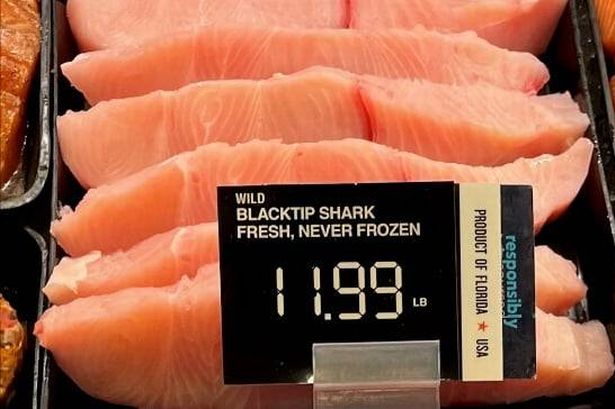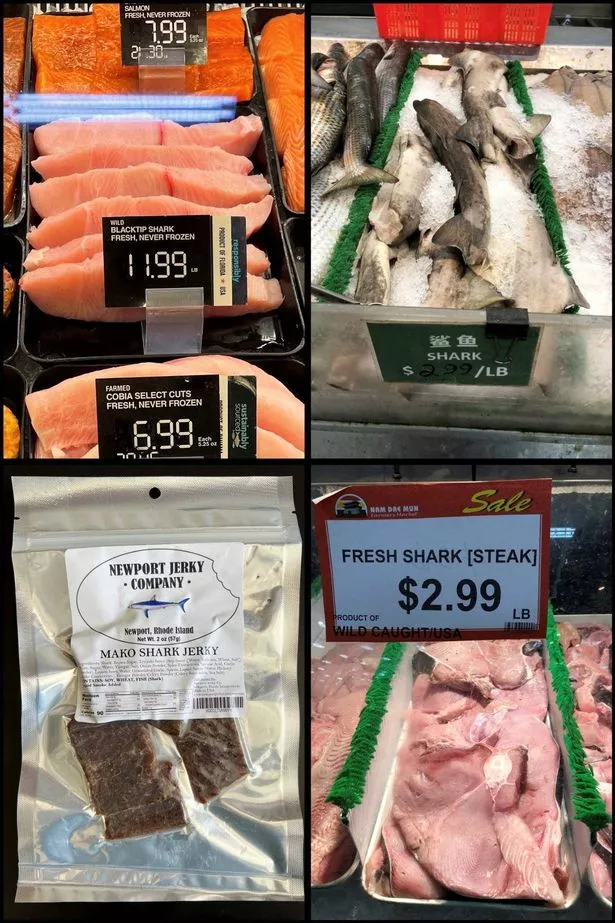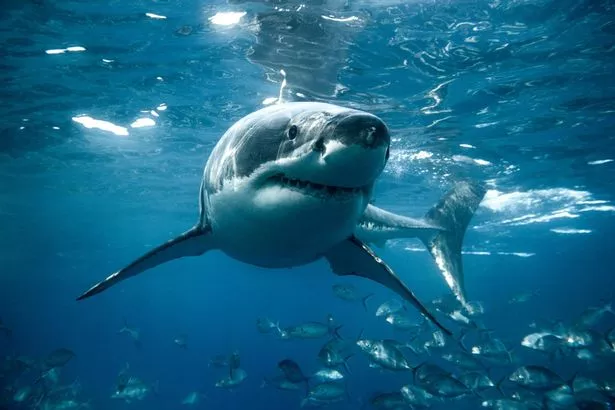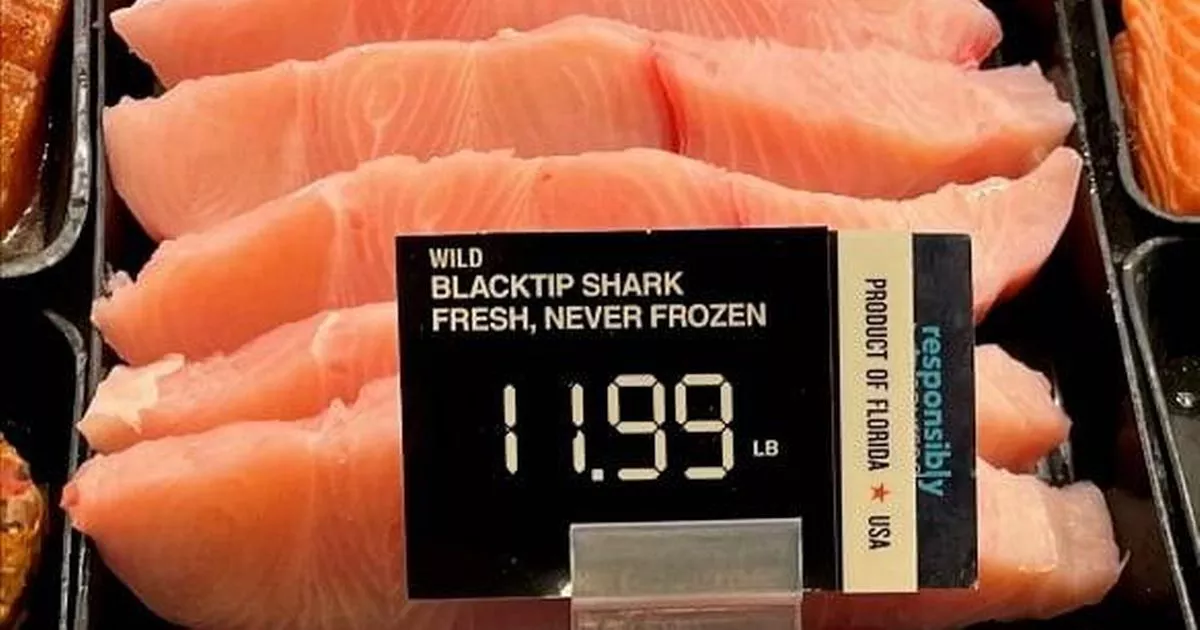A new study has found that shark meat sold in U.S. grocery stores, seafood markets, and online vendors often comes from endangered species and is often mislabelled The research team stressed the importance of accurate labelling
The research team stressed the importance of accurate labelling
Meat from “critically endangered” sharks is being flogged in supermarkets across the country, a shocking new study has revealed. Scientists discovered that shark meat being sold in American grocery shops, seafood markets, and online retailers frequently originates from threatened species and carries misleading labels.
The team purchased and conducted DNA analysis on 29 shark meat products to identify exactly which species they contained. The disturbing results showed that 93% of samples bore “ambiguously” labelling and contained flesh from 11 different shark species.
Amongst the species detected were the great hammerhead and scalloped hammerhead, both classified as “critically endangered” by the International Union for Conservation of Nature (IUCN).
 The team conducted DNA analysis on 29 shark meat products
The team conducted DNA analysis on 29 shark meat products
Shark numbers have plummeted by more than 70% since the 1970s due to destructive practices including overfishing, habitat loss, pollution and climate change.
Yet the research exposed how meat from threatened shark species continues to reach American consumers, sometimes priced as low as $2.99 (£2.99) per lb.
Lead researcher Dr Savannah Ryburn, from the University of North Carolina, explained: “Mislabelling and ambiguous labelling remove consumers’ ability to choose what they are putting in their bodies.”
She added: “For example, two species in our study, scalloped hammerhead and great hammerhead, were ambiguously labelled as ‘shark’ – even though they are strongly advised against consumption due to their very high mercury levels.”
Dr Ryburn concluded: “Without accurate and precise labelling, consumers cannot avoid purchasing these products.”
 Shark numbers have plummeted by more than 70% since the 1970s(Image: Getty Images/iStockphoto)
Shark numbers have plummeted by more than 70% since the 1970s(Image: Getty Images/iStockphoto)
A research team has discovered that out of 29 products tested, a staggering 27 were vaguely labelled as “shark” or “mako shark”, with no specific species identification.
Even more concerning, one of the two products that did include a species name was incorrectly labelled.
Shockingly, nearly a third (31%) of the purchased samples were found to be from four endangered or critically endangered species: great hammerhead, scalloped hammerhead, tope, and shortfin mako shark.
The remaining samples were identified as seven other species, including the vulnerable spinner, lemon, common thresher, and blacktip shark, as well as the near threatened smooth-hound and Pacific angelshark.
The researchers, whose findings have been published in the journal Frontiers in Marine Science, believe their results expose a significant lack of transparency in seafood labelling and a risk to consumer safety.
Professor John Bruno, who co-led the seafood forensics class conducting the research, stated: “The United States should require seafood distributors to provide species-specific names for the products being sold.”
He highlighted the health risks associated with consuming shark meat, which is known to contain high levels of mercury, posing “serious risks” to human health, especially for children and expectant mothers.
The research team stressed the importance of accurate labelling not only for conservation purposes but also for protecting consumers.
Dr Ryburn expressed his shock, saying: “Sharks such as great and scalloped hammerheads are the ocean’s equivalent of lions, and we were shocked by how cheaply the meat of these rare, long-lived apex predators was sold.
“Some samples were only $2.99 per pound.
“The legality of selling shark meat in the United States depends largely on where the shark was harvested and the species involved, due to regulations under CITES and the Endangered Species Act.
“However, by the time large shark species reach grocery stores and markets, they are often sold as fillets with all distinguishing features removed, making it unlikely that sellers know what species they are offering.”
The scientists argue that more robust regulations and supervision of seafood labelling standards are essential.
Dr Ryburn continued: “Sellers in the United States should be required to provide species-specific names, and when shark meat is not a food security necessity, consumers should avoid purchasing products that lack species-level labelling or traceable sourcing.”

